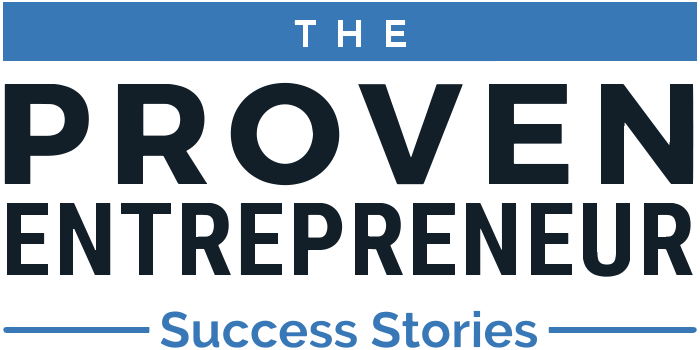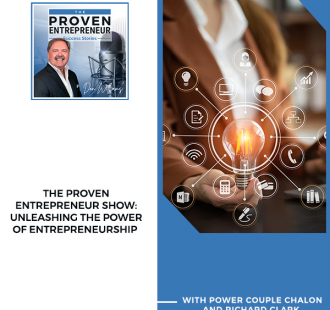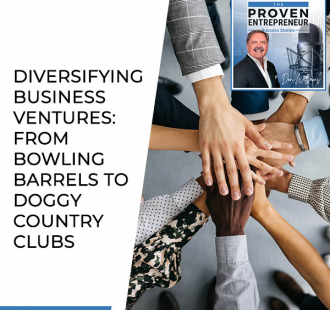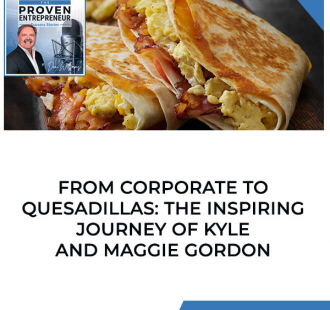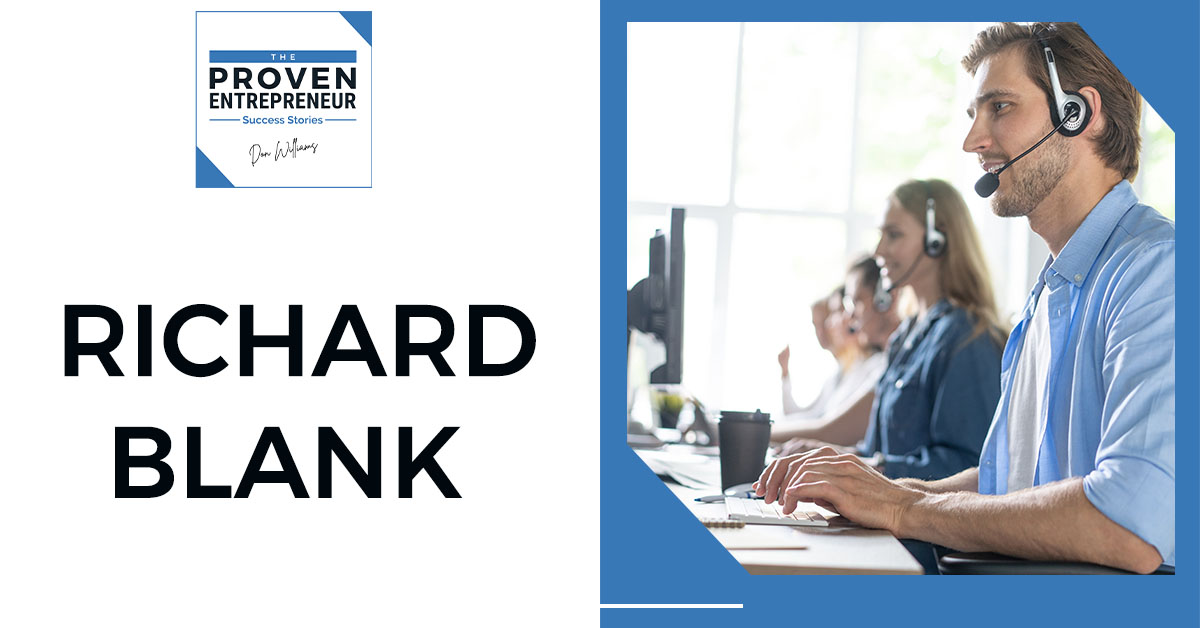
Richard Blank flew overseas to teach English at Costa Rica’s Call Center. Little did he know he would become the CEO of that very call center. This position pushed him to take some time to learn the ins and outs of the business. He got to know each and every agent personally. Most importantly, he created a great working culture for everybody. Figure out how he did these things today!
Richard joins Don Williams to talk about his inspiring entrepreneurial journey. Learn why he wanted to pursue call centers and his unique cultural approach to this business. Discover how you can become a transformational leader just like him in this informative conversation.
For information on how to work with Don visit Work With Don Williams
You can also reach out to Don Williams at https://donwilliamsglobal.com
Please join Don and his businesses in support of St. Jude’s Children Research Hospital in its Mission to cure Childhood Cancers. You can donate to St. Jude at stjude.org/donate
—
Watch the episode here
Listen to the podcast here
Richard Blank
CEO Costa Rica’s Call Centers
I have a treat for you. I have Richard Blank from Costa Rica. Welcome to the show, Richard.
I am so happy to be here on the show. I appreciate it, Don.
Thank you very much. I’m going to take you back to little Richard. You are five years old in the home where you were raised. Maybe that was mom and dad or however that worked. It doesn’t matter. From 5 to 18, what I want to know is, was there an adult that was a role model for entrepreneurship? Was there somebody who was an entrepreneur in your childhood?
It’s in my blood from both sides of the family.
Tell me about one and then we’ll ask about the other.
Which side do you want first? My mother’s or father’s side?
Ladies first, let’s talk about mom.
My family comes from Europe. I’m Romanian, Russian, German and Polish. At the turn of the century, my great-grandparents came over from Europe. They all learned English. Both sides were entrepreneurs. On my mother’s side, they were more tailors. They started off going to clothing and in the Depression, we started a company called Dream Tots, which was nightwear for women. We made our money during those years.
On my father’s side, they came over from Romania and Russia. They were entrepreneurs in regards to home furnishings in a sense of kitchenware and furniture. They used to do things on layaway, like this year’s catalog and the company was called Consolidated Home Furnishings. That was back in New York and Philadelphia. It’s in our blood. We’re entrepreneurs who are nomads and take large risks. As a little boy, I used to hear stories from my grandparents and great-grandparents. I realized I wanted that sense of adventure as well. I didn’t want to go back to Europe. I wanted some better weather.
Entrepreneurs are nomads. They take large risks. Click To TweetHere’s an interesting fact. I’ve done about 200 of these interviews and most US-born entrepreneurs didn’t have an entrepreneurial example in their home. They were wired that way a little bit, to begin with, and their nature-nurture took on the rest of the way. The interesting thing is that 1st and 2nd-generation Americans whose parents or grandparents came from some other country have a very high percentage of those entrepreneurs who had an entrepreneurial example in their life.
We all got in the US at some point but if your family’s been in the US for a long time, you have a tendency and I’m included. I have a tendency to take things for granted that maybe people born in other parts of the world don’t take for granted when they get here to the US. Maybe that’s how that goes. In your household, mom and dad are both doing things and the grandparents are doing things. Tell us about your first job. You might have been an entrepreneur. You may have never had a job. What is the first thing that you did that resembled work that you got paid for?
It could have been the first one where I was earning money or the one where I was most satisfied. The time when I realized I had salesmanship was when I was raising money for my Little League uniforms. We were supposed to go out and sell $1 candy bars. This is back in 1978. That’s pretty expensive. It was interesting. They gave us 50 candy bars. I walked around my neighborhood and sold them all in one Saturday.
A lot of people gave me money and said, “Thank you, Richard. You’re cute. Here, keep the candy.” My father was pretty cool. When I brought back the $50 and the candy was gone, he said, “You can keep the money. I’ll pay for the uniform.” I go, “Really?” He goes, “Yeah. You worked your tail off for that.” I realized that hard work does breed success.
We were born in the United States and a lot of times you are given opinions. They’re offered to you and maybe your career should be predestined. Maybe law, medicine, engineering, architecture or Ivy League. It might be difficult sometimes for someone like myself that wanted to be a Spanish major in college. I am that dreamer and romantic. It’s very difficult to compare notes with people because they were off on other journeys when I was doubling down on humanities and languages.
As much as it seemed like a long shot, well look at it like this. I’m in Costa Rica and getting a return on investment in a second language when some people spend $100,000 and don’t follow through on that career. A lot of it is being true to yourself, standing up to the naysayers and great believers, doing your due diligence and not just jumping in two feet without any investigation but I was pretty much prepared for this. At 27 years old, I was given a one-in-a-million opportunity to move here. The wind has been in my sail and the stars became aligned. I decided to continue on my vision quest, my spiritual journey. When you see me smiling, I’m living the best life. I have never been happier.
Many entrepreneurs, maybe it’s their first company or their not first company. They were in it for a profit motive or were trying to avoid submitting to authority somewhere but almost universally when people begin to follow their heart or some people might say their gut, that’s when the magic starts to happen. It’s interesting as we look back on our paths how the cards seem to fall almost magically correctly at the right time in our journey. Spanish studies have been very beneficial in your business. Let’s talk about your business. You’re in Costa Rica and I know what your business is but tell us what is your business.
It’s Costa Rica’s Call Center. We’re a dedicated bilingual nearshore call center that works with inbound and outbound support. I work with clients in the United States, Canada, Central America and a little bit of Europe. When I came down here, I was only supposed to be here for two months at my friend’s call center to teach English. I was in between jobs at the moment so I decided to stay. When I was with the people, the proletariat, I learned the business from inside and out.
After four years of learning this business, I cracked some codes and ways to enhance the experience for the agent and the client. Also, I was mature enough in my mid-30s. I had my impulse control and some capital that I wanted to throw my hat in the ring and begin. Don’t kid yourself. A lot of entrepreneurs think that I started the bells and whistles and renting the building. No, I started quite slowly. I was renting turnkey stations at a blended center. After a couple of years, I rented space and build out 150 seats in a server room.

6 years after that, I had enough money to build a 300-seat center and continue my business. It’s more of the tortoise instead of the hare. As grandma told me, if you can’t pay for it in cash, you don’t do it. The reason I saved that money was for job stability for my agents and also to weather a couple of storms that happened during COVID and a couple of other years. I’m a long-term player that can go the distance.
Storms will happen. No matter how good the weather looks, there’s a storm out there somewhere. I don’t know where but there is one coming. I don’t know if you know this about me but one of the businesses that I own is in the contact center business. We’ve been in the contact center space for years in that business, which makes us a real old-timer. This is not a business for the faint of heart.
Were you using rotary phones back in the day? What were you doing?
We were using not rotary but black push-button phones.
The Cisco phone is manually dialing away.
I had several communicators, two in all the years who could dial. They would flash hook. They would never hang up the phone all day long. They could run the phone the way a good bookkeeper accountant could run a ten-key machine and it’s backward and upside down. It’s not the same keypad but they were the same way. It was unbelievable how many calls those two could make. Technology became available way back in the day when dialers were new and cost $15,000 a station so we went to automation. Technology has evolved and that stuff nobody even buys. It’s just pay by the drink.
Besides technology, didn’t you love the art of speech? How these people were so engaged on the phone and were able to convert these calls?
It’s not a technology business. It’s a people business. In my humble opinion, most businesses are people businesses but technology can be your friend and certainly, the advances that have happened in that business with automation and voice-over IP have made the world very small.
You see a lot of people going more toward chat and non-voice support, which is fine. It saves some time filling out forms but you’re also eliminating any chance for retention, referrals, up sales and any kind of exit interview. You’ll get much more of a quality relationship and experience when you do have the ability to speak with your clients.

I wrote a book years ago called Romancing Your Customer. It is all about providing exceptional experiences to your prospects, customers, teammates and subordinates. They love doing business with you and working with you. One of the concepts in that book that we discuss is that the more complex or valuable a communication, we want to climb that communication pyramid.
Everybody wants to use text and email. It’s textual communication but there are a lot of different forms. The reason salespeople want to use emails is that it’s easy. It’s not effective but it is easy. Above that, we have video-con, what we’re doing or audio would be the next layer and then videocon and then face-to-face. The more complex and valuable, the higher up that pyramid we want to go. Think about proposing marriage, it would be best to do that face-to-face. If you’re doing a show, you want to do a video conference.
We try to reduce as much misinterpretation as possible. Even though someone could be writing you something, the tone could be off or the vocabulary. Sometimes they’re lacking some strategy or diplomacy. A lot of the time, I will call up to follow up with a client to make sure that I am understanding their message. I’ll be honest with you, a lot of the time, it’s more bark than bite. They might write something or do it in a bold cap so be it. I can take it. Let me see if you can back it up with how you say it because a lot of the time, they’ll realize that they may have overextended themselves and they’ll try to readjust that tone. If you don’t know the client very well, it could be a very strange first impression and you want to get a second opinion on that one.
I’ll share a story and then we’ll go back to you. Many years ago, I have an office in another state. They’re very busy. We had fax machines. This was way back when DIRT was new. I knew they were busy. I took a piece of paper and wrote, “Call Don,” and faxed it to the Little Rock office. About an hour later, the manager calls and he’s like, “I know you’re mad and I’m so sorry.” I’m like, “Why would I be mad?” He said, “You sent me a fax.” I’m like, “What did it say?” He said, “It said, ‘Call Don.’” I was like, “It didn’t say, ‘Call Don.’ It said, ‘Call Don.’” The thing that we forget about written communication is you don’t get emphasis.
You forgot to say, please.
Yeah, but I am known for at times being very short-worded and direct so it was just “Call Don” but you never know. You went to Costa Rica. You’re teaching English because you’re fluent in Spanish. Somebody is running a nearshore call center and you’re engaged with them. You help them for four years. You learn the business. You don’t learn the tricks of the trade. You learn the trade.
I sat with the people. I got to see the good and the bad, the happy and the sad. What I learned by not being a C-level executive from the start is empathy. The agents felt like they did not have their dignity and a lot of them felt expendable or like a robot. When you hear those things, you do realize that people have lives outside of the office, which may affect their performance. Instead of writing checks and saying good morning, I’ll know your name.
As you can see, I have a gamification culture here. I collect pinballs, Jukeboxes and arcade machines. I like to play games with the agents and let them let off steam and make friends. Unlike what we’ve seen in the movies and we’ve all seen the Boiler Room, The Wolf of Wall Street and Glengarry. There are some centers like that but not all call centers sell stock or have that assertiveness on the phone. It doesn’t match every profile agent that you and I have hired.
Hollywood glamorizes it but yes, these individuals are very talented in speech. Since English was their second language, I took that delicate position and expanded on their vocabulary with the resources, understanding the North American culture, their delivery and being in the call center space, focusing on quality assurance. We can listen to their calls, grade their calls and focus on their soft skills.
It’s a people business. Soft skills make all the difference in what happens. Thinking back on your career, I’m going to ask you about a hard lesson. Something that happened that at the moment was like, “I did not like that,” but maybe in retrospect, it turns out that it was positive for you on your journey. Do you have a hard lesson like that you could share with us?
I started my business in 2008. In 2010, I put the majority of my eggs in one basket. I went from 90 seats down to 4 seats. I lost a very large account. A couple of things happened. Reality hits you in the face. It makes you very humble. It makes you very grateful that you had a run but then you also judge someone’s character during the chaos. Instead of breaking windows, picking puppies and screaming at everybody, I became a lot more appreciative of the four agents that were with me to help build up the company again. Also, you learn a life lesson as well about being a one-trick pony. Could lightning strike twice? Was I just lucky?
I’m not happy about the fact that I got knocked down. It didn’t mean I got knocked out. What I had to do was readjust myself for the remaining rounds of the fight. Building a business from 90 seats to 4 seats and then 150, I have the ability to pick myself back up and continue. You could always quit and give up. You could say, “We did well,” but for me, I almost take the John Wayne philosophy of dying with my boots on.
When you go from 90 seats to four seats in your business, pick yourself back up. Die with your boots on and keep on going. Don't let one account ruin your entire career. Click To TweetI came this far. There’s still a little bit more to go. I wasn’t going to let one account ruin my entire career. As much as I’m not happy about that step back, I learned many lessons but the main lesson was about myself. I didn’t do something to disappoint myself, burn bridges or look back and be very embarrassed by how I handled myself.
You don’t want to talk about negative things. For example, if you have a situation at a call center where there’s attrition and a client might lose an agent and they don’t give you a two-week notice and leave. I don’t like surprises. I will call my client immediately and make suggestions. I will let them know what’s happening and always be ahead of it. If a client can work with me through certain situations, it only solidifies a foundation so we can easily get through the good times.
I guess that’s putting on the big boy pants, having that maturity and not hiding. It’s about being accountable and some things are outside of my control. I can’t go home with these people and control everything that they do but I can control myself and be here. That’s a lot of the reasons why my clients move forward with me because I call the balls on the strikes and I’m a straight shooter just like you.
Brutal honesty is in short supply. When you deal with customers from that standpoint, you’ll share the good, the bad and the ugly as it happens. We have a plan to overcome it. It’s not like I’m calling and telling you, “The wheels are off the bus and we don’t know what to do.” Sharing that, the brutality of honesty, in my opinion, shocks people because they don’t get much of that in their life.
It’s a positive shock. It builds and deepens trust. That’s how you build and deepen that relationship for years to come. In this business, every client probably leaves someday. I don’t know what day but even if AT&T is your biggest client, at one time, they were the biggest buyer of telemarketing services and call center services in the world but one day, they leave. It’s inherent to have Verizon too as a client, that way you don’t have all your eggs in one basket and it’s not traumatic.
Thank you for sharing that. We’ve all been there. To me, the seed of success in that was the fact that I won’t quit. I’ll keep playing because many of the success stories shared on the show include, I won’t say failures but failing and counterintuitively. Failings are a part of success. They’re not the opposite of success, which is common sense as it is but it’s not. Michael Jordan, the basketball player, listed all these things he failed at and said, “The reason I’m successful is that I failed at all those things.”
I love dedicated practice. I like it when people are working when the cameras are off and the office is closed because they’re training for it. They’re preparing for the heavyweight fight. I believe that you’re increasing your odds in your composure. You’re letting off steam. It’s not just sitting around reading business books and reviewing emails. Maybe it’s working out in the gym or washing your convertible or for me, playing pinball or spending time with my wife. There are certain times when you could walk away to decompress and prioritize. At the moment, being from Philadelphia, I might have a short fuse, say something and get all rocky excited. Sometimes, it’s better to walk away and calm your head. You can then come back to that conversation with a different mindset.
On very large decisions, someone should be given the opportunity to think about it or sleep on it. If they wake up the next day feeling the same, then it is the right decision. I don’t like forcing a hand. I know there’s a sense of urgency sometimes but your lack of preparation should not be my emergency. In addition to that, I need to be able to explain the Costa Rican labor laws because there might be some expectations you have in the United States with your company culture or what you want to do that won’t work here.
A lot of it is prevention instead of a cure. I might be calling you with that non-surprise phone call with a solution but prior to that phone call, I had laid out that this could potentially be happening. It’s not like it’s the first time hearing this. It’s almost not a takeaway and I’m not trying to not sell my company but when someone is on the phone with me as an expert, as you are in your field, we must go through everything with them. From an educated decision point of view, they can make that decision.
It is so much better to prevent issues than it is to try and solve them. It is so much easier. I’m going to ask you for a nugget. Something that’s 24-karat solid gold, a nugget of advice that you know that you should share with us.
I got so many. My first one is gamification culture. I collect pinball machines and stuff. I believe that somebody should be in a neutral environment to meet other people and be able to recharge batteries. It keeps me young. It used to be a passion but now it’s an obsession because I grew up in the ’70s and ’80s and I have the room for it. Any boss that creates an environment for people to enjoy themselves, that’s number one. Secondly, it’s about delegating. For me to scale and grow, I needed to have faith in individuals and promote them.
As a boss, you should be the one to meet other people and recharge their batteries. Click To TweetI only believe in promoting from within. We’ll bring in specialists for the IT department but there is no way I will bring in an outside supervisor. They haven’t earned the respect, raised the ranks, gotten their stripes or even know my company culture. That’s very important for me as well. Another is that I am a guest in this country here and I’m trying to break any stereotypes that they might have of an Extron hero as a guest in the country as a CEO of a company, a telemarketer or a call center.
A lot of the agents say, “You’re the first boss that ever knew my name.” I go, “That’s a shame because the other ones did have the chance and unfortunately, I might be the last one to ever know your name but while you’re with me, what I’m going to do is to make you better.” I reduce any fear to let them know that learning a second language is ten times tougher than what they can do. I’ll give them all their resources to reduce any fear that way. I’m going to be their biggest fan. I’m going to find every single way that I can to promote them and give them long-term job stability.
You sound like a transformational leader, which with transactional leadership, you have the president at the top and then the commander in chief. They have general officers, officers and then the troops. In transformational leadership, that’s turned upside down to where the leader sets the vision and enables the people to go manifest that vision. I love gamification. I can’t recall his name but one of the original heads of HR, he’s a PhD, at Texas Instruments, has a company where that’s all they do and they do it in the call center business.
People like to play games and have chances to do something. The great story he told was, “If I could pay you $20 an hour to go sit on a stool and push a button on a machine and then 10 seconds later, push a button on the machine and 10 seconds later push a button on the machine and you’re going to do that for 8 hours a day, how many of you would want that job?” Nobody’s hand went up. They’re like, “That would be a horrible job. Sit on a stool, push a button, wait ten seconds and push a button.”
He said, “Let me tell you another story. There’s a group of seniors leaving Los Angeles and as they cross into Nevada, they stop for a bio break. Instead of running to the bathrooms, they run to the slot machines that are inside the facility. They sit on a stool, push a button and wait ten seconds. Not only are they not getting paid to do that but they’re also paying to do that activity. What’s different? You wouldn’t take the job where I was going to pay you. These people do it voluntarily without being paid and will pay. The magic between the two is gamification. There is a chance that they might win something bigger. That’s how the human mind works.” It was fascinating when I learned that.
I’ll put you in a time machine. Just like Captain Kirk on the Starship Enterprise, we’re going to take you back to 20-year-old Richard and you’re going to get about 60 or 90 seconds to share 1 piece of advice that would’ve helped you along your path. Something you know now and you didn’t know then but looking back, you wish you knew then. Into the time machine, you go all the way back. Here’s the twenty-year-old you. What would you tell yourself?
I would’ve told myself to be concentrating on commission-based professions only. When you’re limiting yourself to an hourly rate, which is fine, you can get your insurance and everything but if you do something where your potential is limitless, you can be seen over a call center. I’m not saying that the naysayers and great believers were not encouraging me to follow my dreams but a lot of it had to do with security and what they knew.

A lot of that influenced post-grad with those jobs until I came to Costa Rica or that’s where my mindset was. I was thinking, “If you make $100,000 a year, you hit it but little did you know you can make $1 million a year. It’s just another zero on a paycheck.” I would be telling myself at twenty years old, “In about 30 years, you’re going to have a bunch of pinball machines, be living in Central America and marry the girl of your dreams.”
I would be like, “Pinball machines,” but I also would’ve told my twenty-year-old self, “You have beautiful hair. Maintain it. Maybe start studying the violin a little bit sooner so you can impress your wife,” but I also would’ve said, “You are on the right path. Continue studying Spanish, which you love so much. Be true to yourself so there are no regrets.” The only difference is those three jobs I had post-grad but besides that, the rest of it was doubling and tripling down on myself and hitting.
I have a good friend. He shares with people, “As a young man, I wish I had known only to work on huge opportunities. The amount of effort isn’t that much different but the payoff is. Invest in working on huge opportunities as opposed to small opportunities.” Richard, how can we support you? What can we do for you?
Sharing ideas on your show has been fantastic and following your works there but if anybody wants to come to visit me in Costa Rica, that’d be great. I have a lot of suggestions for you.
I’m coming. I don’t speak idly.
My main thing on your platform is to let people know not to be footloose and fancy-free but if you do have a vision and these intuitions and you have something that is pulling you towards something, you should follow through on it. Maybe not 100%. Maybe dip your toe and test it to see if there’s a positive reinforcement there.
Don't be footloose and fancy-free. If you have a vision for something, follow it through. Click To TweetAlso, maybe not just to chase money. As well as I am doing, I’m also feeding 150 families a month. I get to meet their parents and their kids. They come to me and say, “Thank you so much.” You don’t kid yourself. When I meet one of my agent’s mothers, you don’t think I’m going to tell them how great Don is for ten minutes? I am embarrassing the daylights out of them because it’s paying it forward. Even at my high school, which was the one that encouraged me to study these languages, I set up a second language scholarship. I’ve been doing this for the last few years. A senior who graduates, I’ll pay for their books their freshman year.
For me, I love giving back to those that gave me momentum. I believe in synergy. As much as people work at this company, they’re working with me. They’re not working for me because if nobody comes back the next day, I don’t have company. It’s like that kid at Chuck E. Cheese with no friends on his birthday. The market speaks and the fact that I’ve been in a very competitive industry for my business for years and I’ve grown to this extent, I have a luxury of a track record.
I don’t need to prove anything. I’ve done more than enough to reassure myself that I made the right decisions but besides missing my family and living 3,000 miles away from my parents, maybe I did some selfish decisions but I also know about having a life that could be fulfilled. I probably would’ve been successful in any vocation that I took but the fact that I have a wonderful story to tell at cocktail parties. Do you know what’s funny? When I go back to Philadelphia for my reunions, all of my friends are so extremely successful but each one of them has said to me, “I wish I tried that one thing at least for a little bit when I was younger or I had the time or the finances.”
I don’t want to lecture them but all of us get 100 years on this planet. How do you want to do this? My young Richard used to read stories about leaving castles, slang dragons and saving princesses. I wanted my adventure. I wanted to conquer mountains, seas and deserts but what can you do in the 21st century? There’s not much you can explore. Just like great grandma and great grandpa, I decided to be a nomad and try something where I couldn’t use my family’s connections or my friends couldn’t give me the introduction. I started from scratch. As much as I might have started from home play compared to 2nd or 3rd base, that’s fine because it was a 100% Richard story.
We’re at the finish line. I have so enjoyed having you on the show. I reserve the right to recall the witness. I want you to come back and we’ll do it again. We’ll talk about something else. Richard, thank you so much.
I had the best time, Don. Thank you.
That’s it for this episode. See you next time. Thank you. Bye.
Important Link
About Richard Blank
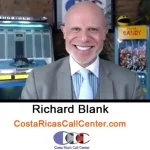 Richard Blank is the Chief Executive Officer for Costa Rica’s Call Center, a division of Cheyenne Consultants, a company incorporated in Costa Rica. At the beginning of the new millennium, Mr. Blank relocated to Costa Rica to train over 500 employees for one of the larger call centers in Central America. By utilizing his motivational public speaking style backed by tactful and appropriate rhetoric, he has successfully prepared and managed some of the finest telemarketers in the country for the past twelve years.
Richard Blank is the Chief Executive Officer for Costa Rica’s Call Center, a division of Cheyenne Consultants, a company incorporated in Costa Rica. At the beginning of the new millennium, Mr. Blank relocated to Costa Rica to train over 500 employees for one of the larger call centers in Central America. By utilizing his motivational public speaking style backed by tactful and appropriate rhetoric, he has successfully prepared and managed some of the finest telemarketers in the country for the past twelve years.
In addition, he has earned the reputation of running a school for telemarketing and is often sought after for private training sessions and consultation. In anticipation of CAFTA, he became a strategic partner of the Pacific Rim Chamber of Commerce, Beverly Hills, California and Solo Telecommunications, Colorado Springs, Colorado to expand Costa Rica’s international telecommunications and business appeal. Mr. Blank holds a bachelors degree in Communication and Spanish from the University of Arizona and a certificate of language proficiency from the University of Sevilla, Spain.
For information on how to work with Don visit Work With Don Williams
You can also reach out to Don Williams at https://donwilliamsglobal.com
Please join Don and his businesses in support of St. Jude’s Children Research Hospital in its Mission to cure Childhood Cancers. You can donate to St. Jude at stjude.org/donate
